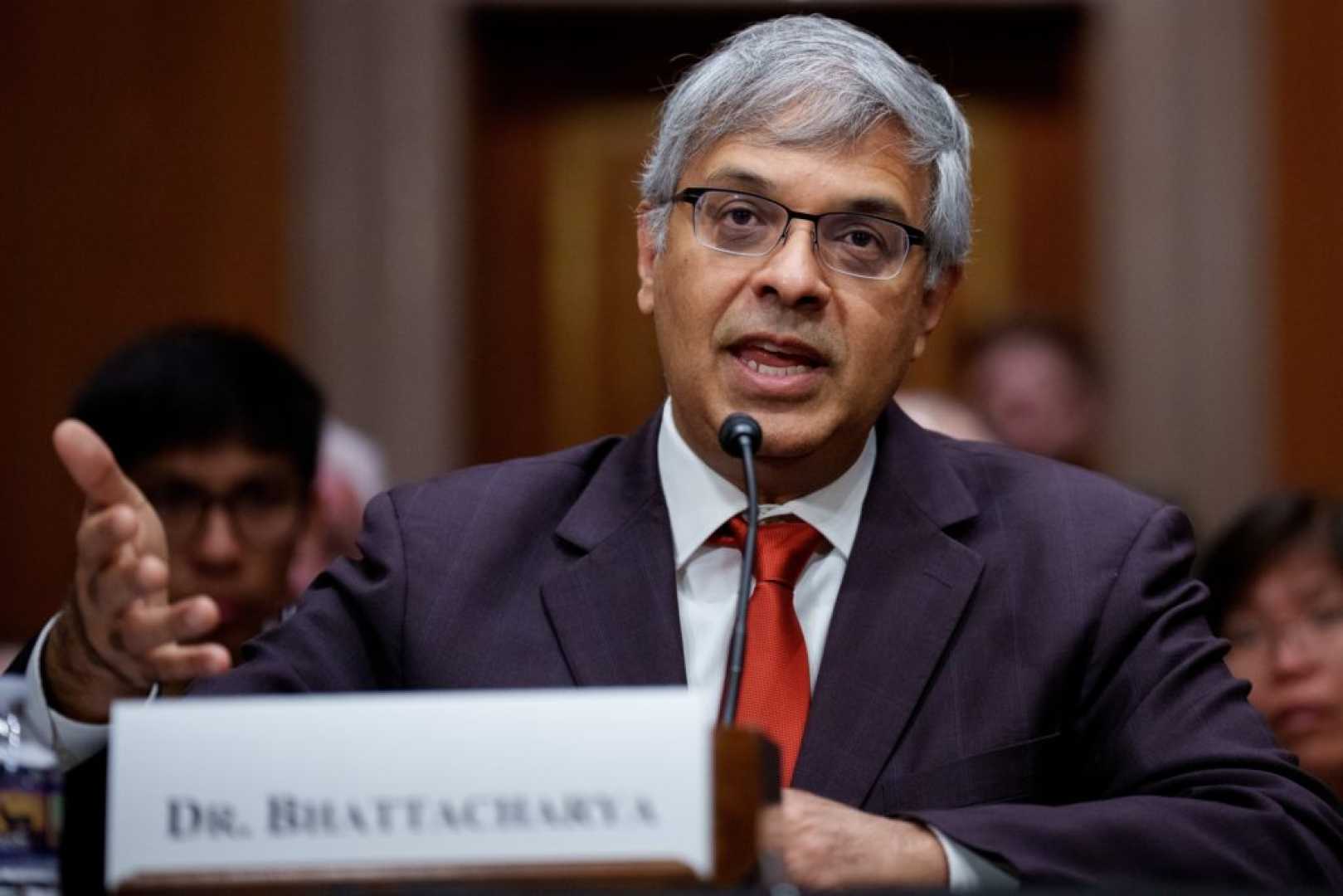Health
Jay Bhattacharya Takes Charge as NIH Director Amid Health Challenges

WASHINGTON, D.C. — Dr. Jay Bhattacharya officially assumed office today as the 18th Director of the National Institutes of Health (NIH). Nominated by President Donald Trump on Nov. 26, 2024, Bhattacharya’s confirmation by the U.S. Senate took place on March 25, 2025. He is set to lead the nation’s foremost medical research agency during a critical time for public health.
“Under Dr. Bhattacharya’s leadership, NIH will restore its commitment to gold-standard science,” said Health and Human Services Secretary Robert F. Kennedy Jr. “I’m excited to work with Dr. Bhattacharya to ensure NIH research aligns with our Administration’s priorities — especially tackling the chronic disease epidemic and helping to Make America Healthy Again.”
In his opening remarks, Dr. Bhattacharya highlighted the urgent need to address chronic diseases, stating, “Chronic diseases such as cancer, heart disease, diabetes, and obesity continue to cause poor health outcomes in every community across the United States. Novel biomedical discoveries that enhance health and lengthen life are more vital than ever to our country’s future.”
Bhattacharya’s tenure at the NIH will focus on fostering innovative research aimed at combating chronic diseases. He emphasized the importance of integrating diverse perspectives as part of his strategic approach. “Encouraging different perspectives will be central to my approach to leading NIH as part of my larger mission to restore public trust in science,” he stated.
Before his appointment, Dr. Bhattacharya served as a tenured professor in the medical school at Stanford University in California and directed the Center on the Demography and Economics of Health and Aging. His academic work has particularly focused on issues surrounding population aging and chronic disease, emphasizing the health and well-being of vulnerable populations.
Bhattacharya gained international attention during the COVID-19 pandemic as a co-author of the Great Barrington Declaration, which advocated for the reopening of schools and easing lockdown restrictions while protecting vulnerable populations. His controversial stance sparked considerable debate but has shaped his view on public health policy.
The NIH, comprised of 27 Institutes and Centers, positions Bhattacharya at the helm of a crucial organization that funds and conducts extensive medical research. As the primary federal agency exploring causes, treatments, and cures for both common and rare diseases, the NIH’s mission aligns with Bhattacharya’s long-term vision to enhance health outcomes.
Dr. Bhattacharya succeeds Matthew J. Memoli, M.D., who served as the Acting NIH Director since Jan. 22, 2025. His appointment comes on the heels of a broader trend where Trump has nominated several Indian-origin Americans for key positions within his administration, reflecting a commitment to diversity within the federal government.
The ongoing challenges in public health, especially concerning chronic disease, underscore the importance of Bhattacharya’s role as he embarks on this new chapter at the NIH. His commitment to supporting breakthroughs in science and health policy will be essential as the nation confronts these pressing health crises.












